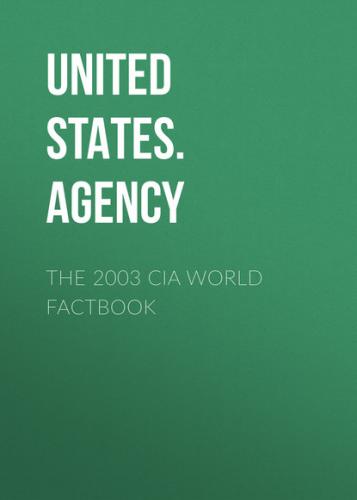cabinet: Council of Ministers as provided for in the December 1994
constitution; ministers are selected by the prime minister and
approved by the House of People's Representatives
elections: president elected by the House of People's
Representatives for a six-year term; election last held 8 October
2001 (next to be held NA October 2007); prime minister designated by
the party in power following legislative elections
election results: GIRMA Woldegiorgis elected president; percent of
vote by the House of People's Representatives - 100%
Legislative branch:
bicameral Parliament consists of the House of Federation or upper
chamber (108 seats; members are chosen by state assemblies to serve
five-year terms) and the House of People's Representatives or lower
chamber (548 seats; members are directly elected by popular vote
from single-member districts to serve five-year terms)
elections: last held 14 May 2000 (next to be held NA May 2005)
note: irregularities and violence at a number of polling stations
necessitated the rescheduling of voting in certain constituencies;
voting postponed in Somali regional state because of severe drought
election results: percent of vote - NA%; seats by party - OPDO 177,
ANDM 134, TPLF 38, WGGPDO 27, EPRDF 19, SPDO 18, GNDM 15, KSPDO 10,
ANDP 8, GPRDF 7, SOPDM 7, BGPDUF 6, BMPDO 5, KAT 4, other regional
political groupings 22, independents 8; note - 43 seats unconfirmed
Judicial branch:
Federal Supreme Court (the president and vice president of the
Federal Supreme Court are recommended by the prime minister and
appointed by the House of People's Representatives; for other
federal judges, the prime minister submits to the House of People's
Representatives for appointment candidates selected by the Federal
Judicial Administrative Council)
Political parties and leaders:
Afar National Democratic Party or ANDP [leader NA]; Amhara National
Democratic Movement or ANDM [ADDISU Legesse]; Bench Madji People's
Democratic Organization or BMPDO [leader NA]; Benishangul Gumuz
People's Democratic Unity Front or BGPDUF [leader NA]; Ethiopian
People's Revolutionary Democratic Front or EPRDF [MELES Zenawi] (an
alliance of ANDM, OPDO, SEPDF, and TPLF); Gedeyo People's
Revolutionary Democratic Front or GPRDF [leader NA]; Gurage
Nationalities' Democratic Movement or GNDM [leader NA]; Kafa Shaka
People's Democratic Organization or KSPDO [leader NA]; Kembata,
Alabaa and Tembaro or KAT [leader NA]; Oromo People's Democratic
Organization or OPDO [JUNEDI Sado]; Sidamo People's Democratic
Organization or SPDO [leader NA]; South Omo People's Democratic
Movement or SOPDM [leader NA]; Tigrayan People's Liberation Front or
TPLF [MELES Zenawi]; Walayta, Gamo, Gofa, Dawro, and Konta People's
Democratic Organization or WGGPDO [leader NA]; dozens of small
parties
Political pressure groups and leaders:
Afar Revolutionary Democratic Union Front or ARDUF [leader NA];
Council of Alternative Forces for Peace and Democracy in Ethiopia or
CAFPDE [BEYANE Petros]; Southern Ethiopia People's Democratic
Coalition or SEPDC [BEYANE Petros]
International organization participation:
ACP, AfDB, ECA, FAO, G-24, G-77, IAEA, IBRD, ICAO, ICRM, IDA, IFAD,
IFC, IFRCS, IGAD, ILO, IMF, IMO, Interpol, IOC, IOM (observer), ISO,
ITU, NAM, OAU, OPCW, UN, UNCTAD, UNESCO, UNHCR, UNIDO, UNU, UPU,
WCO, WFTU, WHO, WIPO, WMO, WToO, WTrO (observer)
Diplomatic representation in the US: chief of mission: Ambassador KASSAHUN Ayele chancery: 3506 International Drive NW, Washington, DC 20008 consulate(s) general: Los Angeles consulate(s): New York FAX: [1] (202) 686–9551 telephone: [1] (202) 364–1200
Diplomatic representation from the US: chief of mission: Ambassador Aurelia A. BRAZEAL embassy: Entoto Street, Addis Ababa mailing address: P. O. Box 1014, Addis Ababa telephone: [251] (1) 550666 FAX: [251] (1) 551328
Flag description:
three equal horizontal bands of green (top), yellow, and red with a
yellow pentagram and single yellow rays emanating from the angles
between the points on a light blue disk centered on the three bands;
Ethiopia is the oldest independent country in Africa, and the three
main colors of her flag were so often adopted by other African
countries upon independence that they became known as the
pan-African colors
Economy Ethiopia
Economy - overview:
Ethiopia's poverty-stricken economy is based on agriculture, which
accounts for half of GDP, 85% of exports, and 80% of total
employment. The agricultural sector suffers from frequent drought
and poor cultivation practices. Coffee is critical to the Ethiopian
economy with exports of some $270 million in 2000/01, but
historically low prices have seen many farmers switching to qat to
supplement their income. The war with Eritrea in 1999–2000 and
recurrent drought have buffeted the economy, in particular coffee
production. In November 2001 Ethiopia qualified for debt relief from
the Highly Indebted Poor Countries (HIPC) initiative. Under
Ethiopia's land tenure system, the government owns all land and
provides long-term leases to the tenants; the system continues to
hamper growth in the industrial sector as entrepreneurs are unable
to use land as collateral for loans. Strong growth in 2002 resulted
from good rainfall early in the year, the cessation of hostilities,
and renewed foreign aid and debt relief. But drought struck again
late in 2002, and the World Food Program (WFP) estimates 14 million
Ethiopians need food immediately to survive into 2003. The
government estimates than annual growth of 7% is needed to reduce
poverty, yet the maintenance of 5% in 2003 will be quite difficult
(one estimate is for 1.5% growth).
GDP:
purchasing power parity - $48.53 billion (2002 est.)
GDP - real growth rate:
3% (2002 est.)
GDP - per capita:
purchasing power parity - $700
